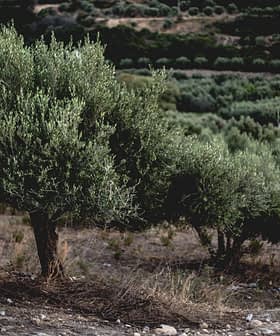An EU-funded project has developed an innovative system of recycling the wastewater from olive oil production.
Algatec II is a collaborative research project addressing the ‘optimization of the biotechnological recycling solution for olive washing water’ funded by the European Union’s Seventh Framework Programme for Research and Technological Development.
By using the water recycling system olive producers use up to 90 percent less water, a major benefit for the environment.
In order to process 100 kg of olives, about 50 liters of water are used to wash the olives before processing. The leftover wastewater is contaminated and cannot be disposed of. This is because the polyphenols which are found in olives, though good for human health, can be harmful to the environment if released in large quantities.
Traditionally, wastewater would be left in large evaporation ponds but this method has a few drawbacks: capacity is limited, stagnant water causes the development of bad odors and the breeding of insects, and the ponds would often have to be emptied manually.
Using the new technology developed by ALGATEC II, after the olives are washed, the used water is pumped into a photobioreactor where the pollutants are absorbed by micro-organisms.
Solar panels heat the water to increase the growth of micro-organisms when sufficient sunlight is not available during winter months. The water then runs through two membrane filters where any residual pollutants are removed.
The purified water can be used to wash another batch of olives or even as drinking water. A demonstration plant has been set up at the University of Huelva, Spain.
The ALGATEC II project is made up of five partners from small and medium-sized enterprises (SMEs) in Germany, Italy and Spain. The next step is to develop a business plan to market the water recycling technology.








